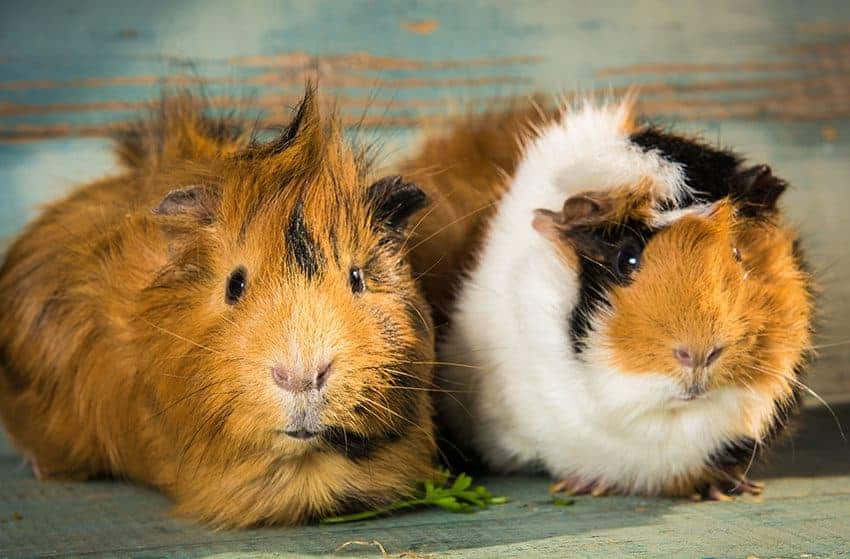
Guinea pigs and humans share one very important quality – the inability to make their own Vitamin C. So, just like us, GPs need to get a daily dose or they can suffer all manner of health issues.
If your guinea pigs don’t get enough of this vital vitamin in their diet, their body’s supply will quickly run out, leaving them vulnerable to a nasty disease called scurvy – a condition common among sailors of old who travelled long distances without access to fresh fruits and vegetables. Scurvy interferes with the body’s ability to manufacture collagen, which is important for bone and tissue formation, and can lead to problems in your guinea pig’s joints and skin.
The best way to ensure your guinea pigs are getting enough Vitamin C is to provide them with an egg cup full of specially created guinea pig food such as Excel Adult Guinea Pig Nuggets with Blackcurrant & Oregano alongside their feeding hay every day.
However, even when they are getting enough vitamin C in their diet, some guinea pigs can still develop a vitamin C deficiency, particularly if they are suffering from another illness or physical problem that either prevents them from eating enough or being able to absorb the vitamin properly.
SYMPTOMS OF VITAMIN C DEFICIENCY
- Weak and lacking in energy
- Difficulty in walking due to swollen joints
- Spots or subcutaneous bleeding just under the surface of the skin • Small wounds that bleed excessively or don’t heal as rapidly as usual
- Poor skin and fur condition
- Discharge from the eyes and/or nose
- Loss of appetite and weight loss
- Diarrhoea
If your guinea pigs show any of these signs, consult your vet immediately and they will be able to determine if the cause is Vitamin C deficiency, or whether it’s due to something else, and recommend appropriate treatment.
DID YOU KNOW?
Vitamin C has a half-life of approximately 10 days in vegetables. This means that from the point of being harvested, the amount of viable Vitamin C contained within the food decreases by half every 10 days. So, aim to feed greens as fresh as possible for maximum nutrient content. That goes for humans too!
THE HIGH C DIET
MAINS
Your guinea pigs’ diet should mainly consist of:
• Plenty of good quality feeding hay • Guinea pig nuggets, which have been specifically formulated to provide all the vitamins and minerals your guinea pigs need
TREATS AND LEAFY GREENS
Try tempting your GPs with a couple of these Vitamin C packed foods alongside their other greens every day:
• Small bunch of parsley
• A couple of dandelion leaves (ensure they have not been sprayed with pesticides or are from an area where wild rabbits graze, as they could carry disease)
• Half a curly kale leaf
• 1 small floret of broccoli
• 1/8th of a green bell pepper
FIND MORE tips and advice on feeding your guinea pigs HERE
Sources: petmd.com, everythingguineapig.com














